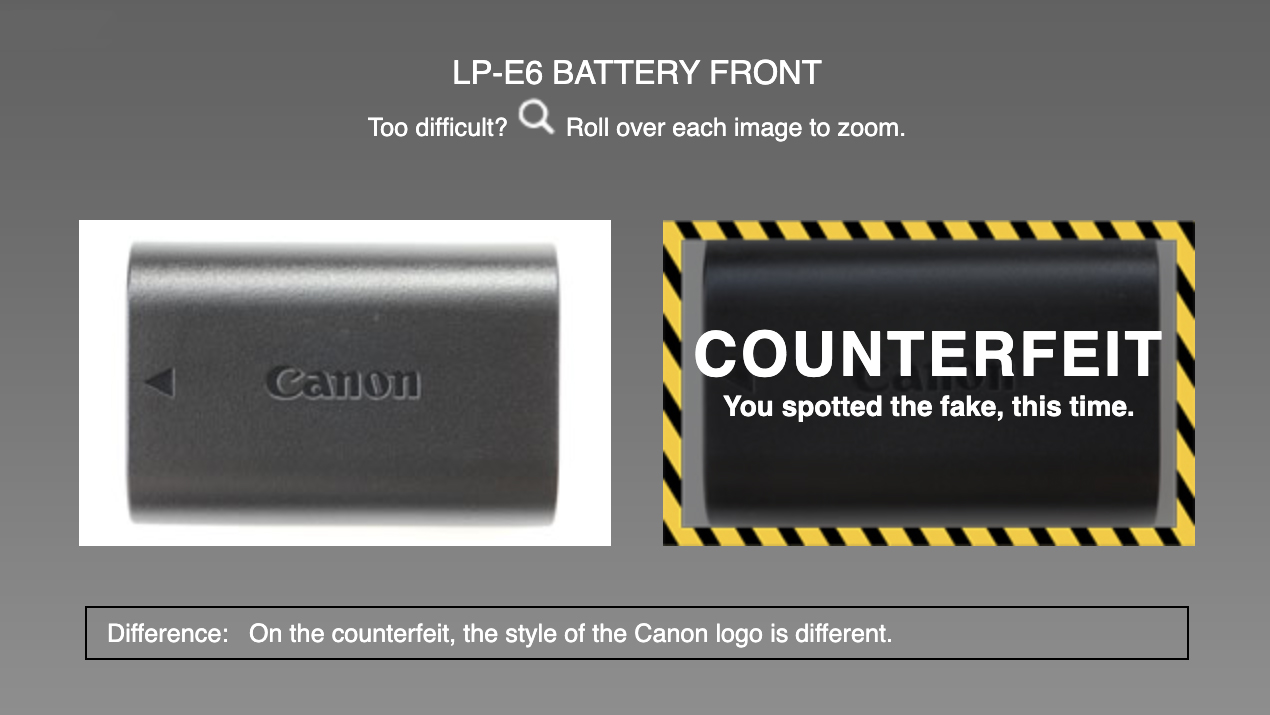Can you spot a fake camera product? Take this quiz!
Do you think you could recognize a counterfeit camera product? This quiz will test your ability to spot the fake!

Counterfeit products have been a problem since the dawn of trade – and when it comes to photography equipment, it can be a very expensive mistake if you end up purchasing a fake product.
Particularly with the rise of internet shopping, auction sites and grey imports (purchasing products from other countries), everything from counterfeit cameras and chargers to bootlegged batteries and bags have all caught out unsuspecting customers.
While there are a number of telltale signs that a product might not be genuine, don't assume that just because you're an experienced photographer that you'll be able to spot a fake.
That was our takeaway, having taken an online test by Canon that challenges you to choose the counterfeit item from a series of products – where we only scored 60%! We're used to dealing with all manner of camera equipment on a daily basis, so if we can be fooled four times out of ten, then you could be as well.
See how good you are at recognizing bootleg product by taking the Canon 'Spot the Fake' quiz yourself – hopefully you score better than we did!
Click here to take the "Spot the Fake" quiz!
Canon also has a number of tips to help you avoid counterfeits, some of which are common sense and some of which are less so.
Obviously it recommends buying direct from the Canon online store (or, of course, the respective online store of other manufacturers) or from an authorized retailer, while avoiding foreign websites and social media marketplaces.
Get the Digital Camera World Newsletter
The best camera deals, reviews, product advice, and unmissable photography news, direct to your inbox!
Always check the moulded brand logo on products like camera batteries, chargers or flashguns, and compare it to an original product. "It may seem like a small detail, but manufacturers apply their logos with great care," says Canon. "Compared to the original, a fake logo may look sloppy, blurry or misplaced."
Likewise, check the printed informational text on the back or underside of products; differences in fonts, font sizes or font clarity, along with things like missing punctuation, can be red flags of a fake.
Ultimately, if something looks too good to be true then it very likely is. Do yourself a favor by only purchasing from reputable retailers – you might save a few books buying something from a social media seller or foreign website, but it's false economy if it goes wrong (or even damages your other equipment) down the line.
Read more:
Best camera accessories
Best camera batteries
Best flashguns and strobes

James has 22 years experience as a journalist, serving as editor of Digital Camera World for 6 of them. He started working in the photography industry in 2014, product testing and shooting ad campaigns for Olympus, as well as clients like Aston Martin Racing, Elinchrom and L'Oréal. An Olympus / OM System, Canon and Hasselblad shooter, he has a wealth of knowledge on cameras of all makes – and he loves instant cameras, too.
